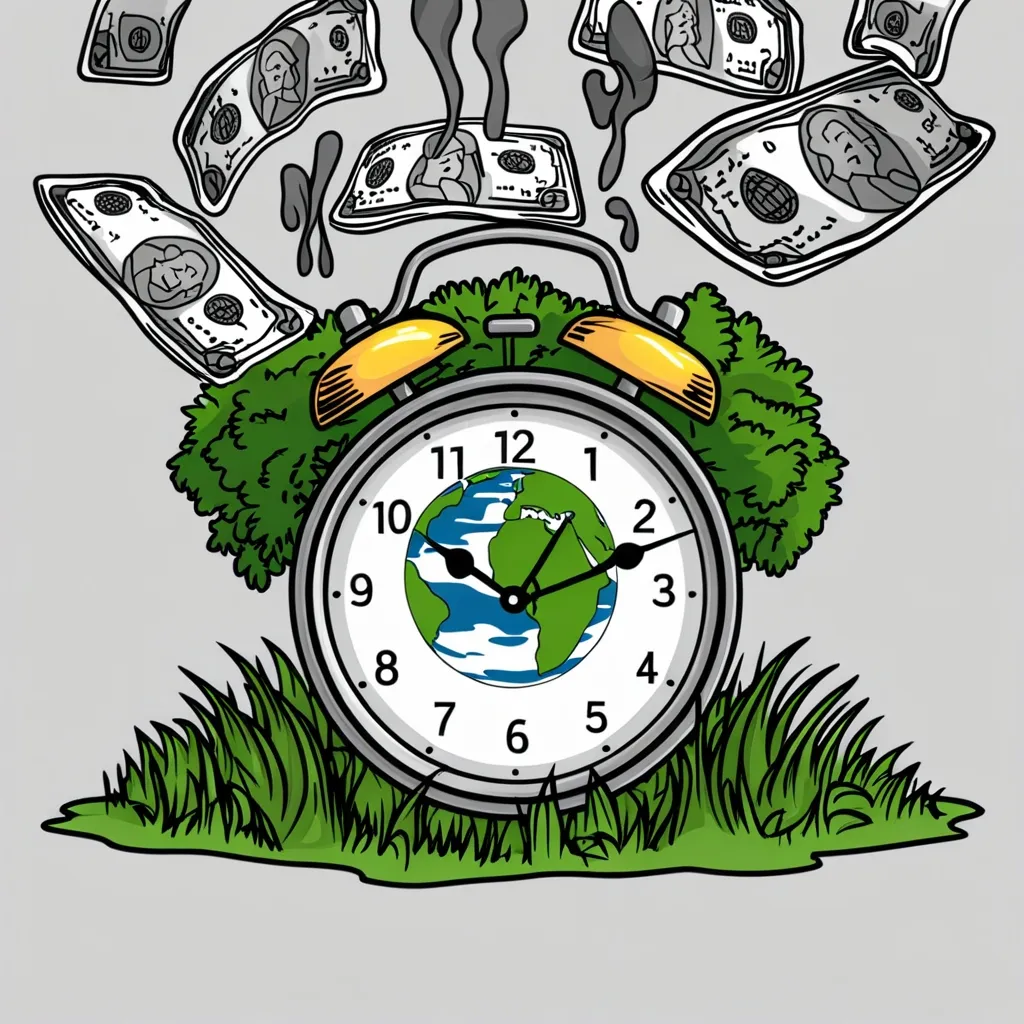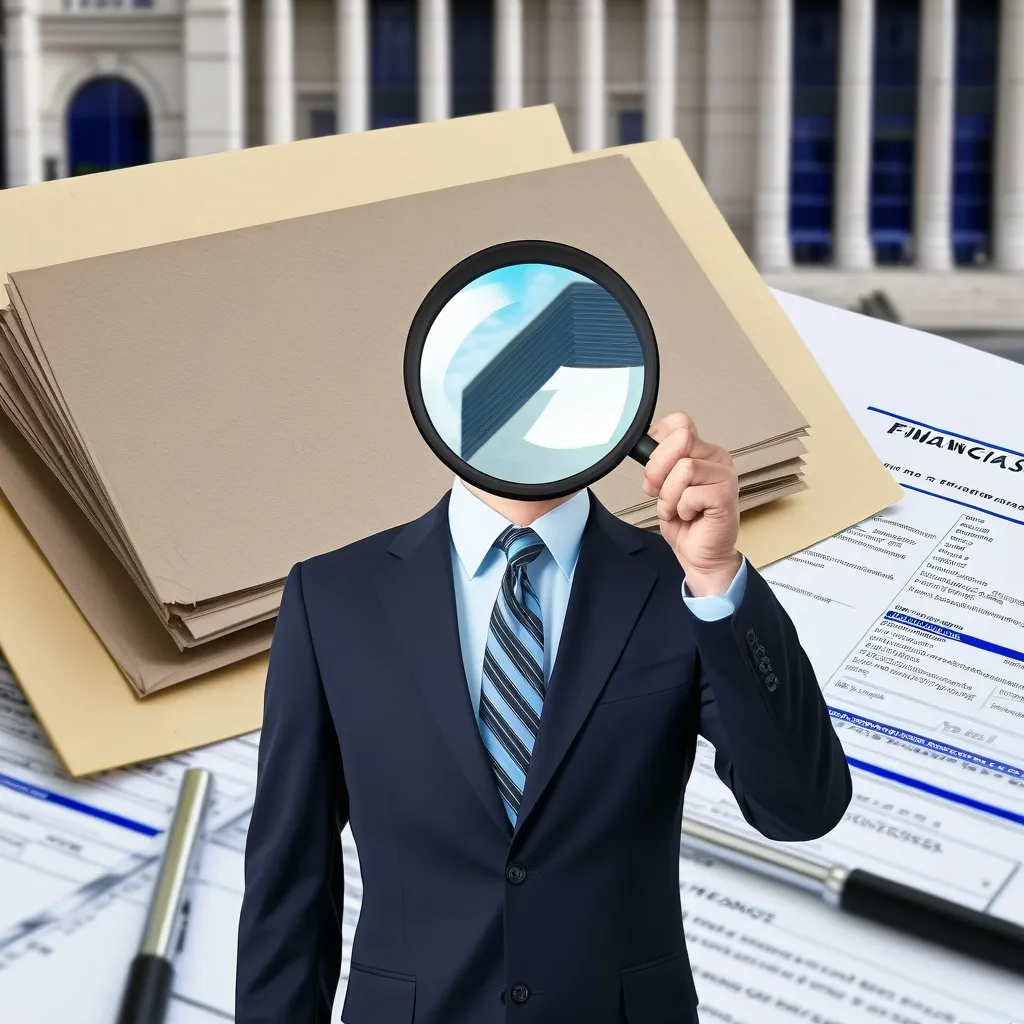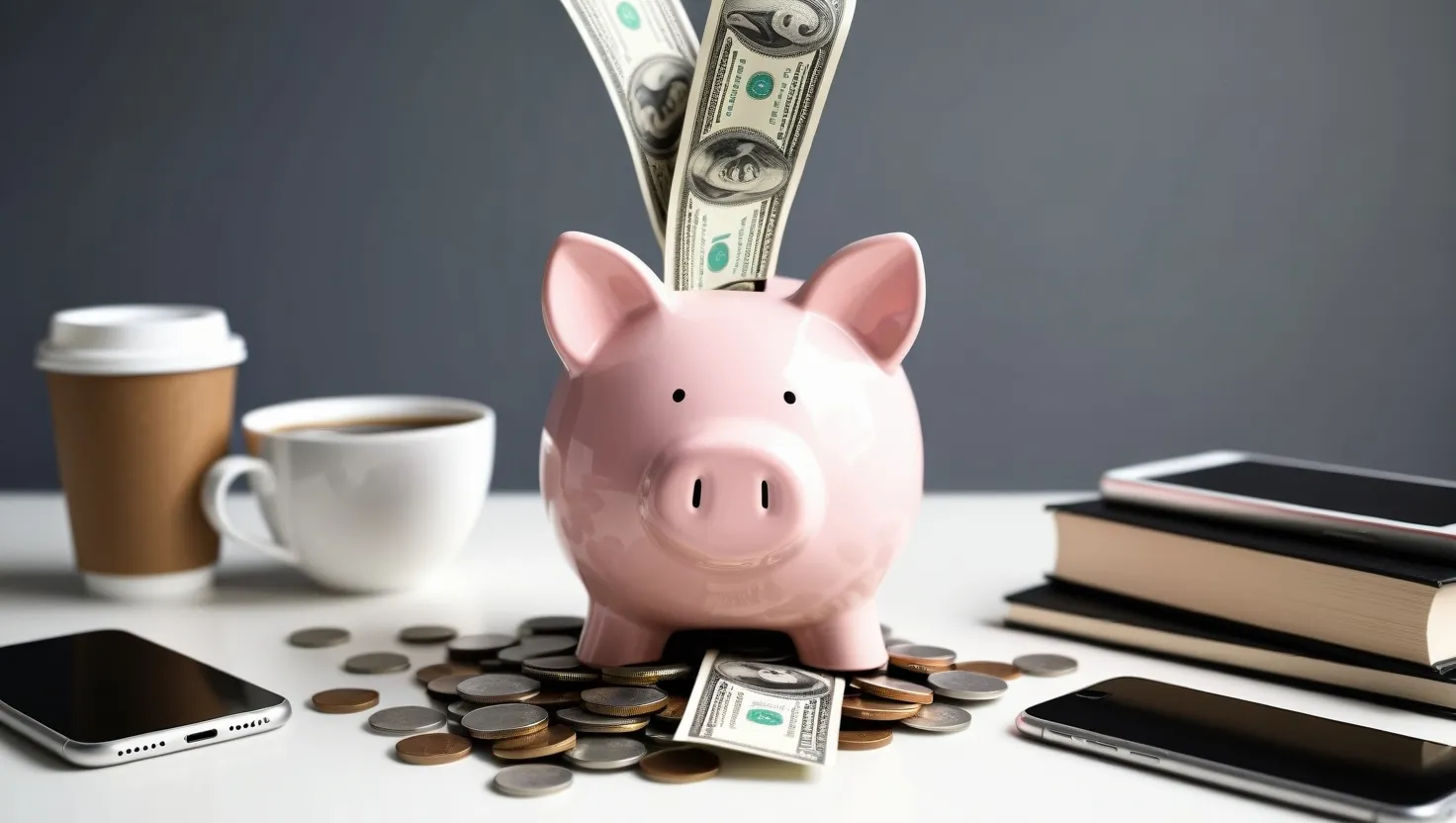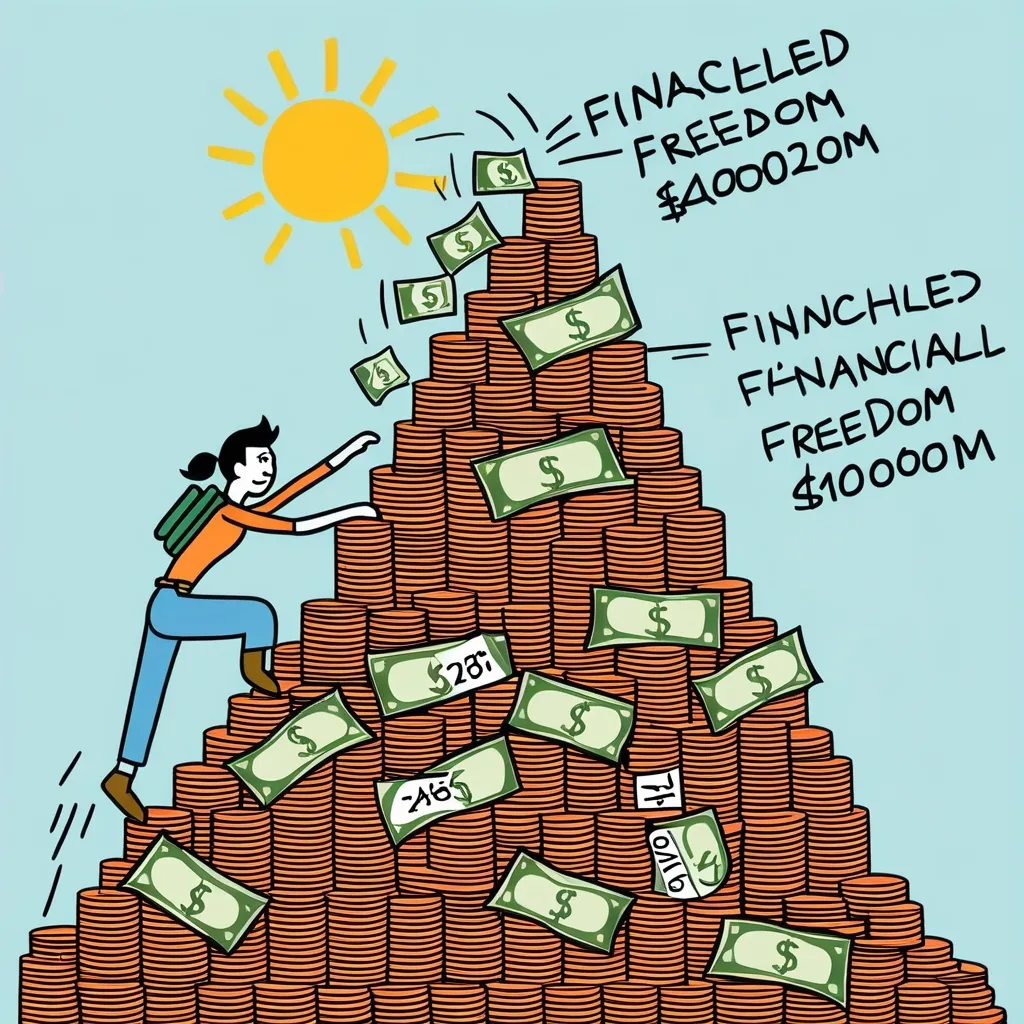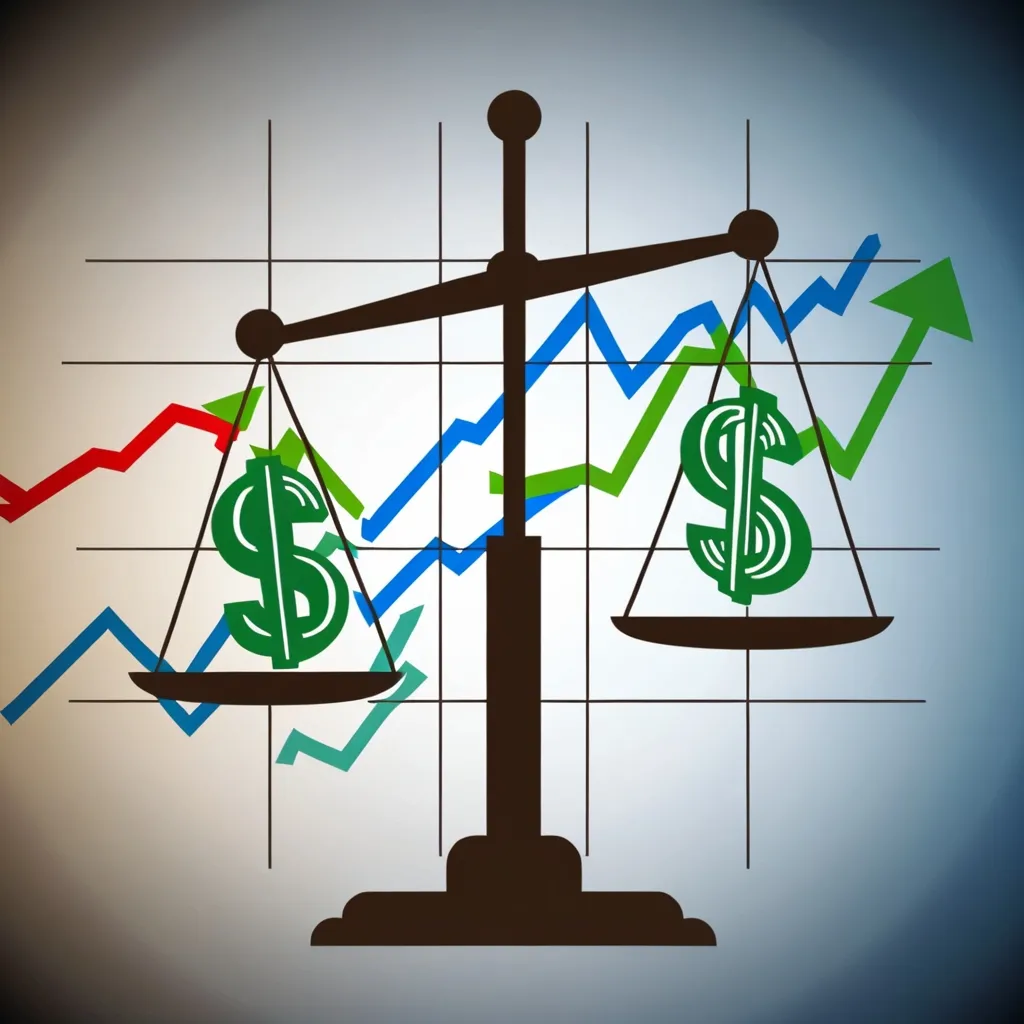Climate Change: The Ticking Time Bomb for Our Financial Future
You know that uneasy feeling when you realize you’ve left the stove on? That’s kind of how the world’s financial experts are feeling about climate change right now. It’s not just about polar bears and melting ice caps anymore – we’re talking about a potential economic meltdown that makes the 2008 crisis look like a hiccup.
Let’s break this down, shall we? Imagine you’re playing Jenga, but instead of wooden blocks, you’re dealing with the entire global economy. Now picture Mother Nature as your opponent, slowly pulling out crucial pieces. That’s essentially what climate change is doing to our financial stability.
First up, we’ve got the whole “green transition” thing. It’s like trying to turn a massive ship – necessary, but boy, is it risky. We’re pouring cash into renewable energy and eco-friendly tech, which is great, but what if we mess up the timing? It’s like trying to change clothes while running a marathon. One misstep, and we could face some serious financial road rash.
Then there’s the weather. Remember when you were a kid, and a snow day was the best thing ever? Well, extreme weather events are like snow days on steroids, except instead of fun, they bring destruction. Hurricanes, wildfires, floods – they’re not just wrecking homes and businesses; they’re bulldozing our economy. Insurance companies are sweating bullets, and rebuilding costs are through the roof (sometimes literally).
Now, let’s talk about stranded assets. No, we’re not talking about that lonely sock in your laundry. We’re talking about investments that suddenly become as useful as a chocolate teapot. Imagine dumping your life savings into a coal mine, only to find out it’s about as valuable as a pile of rocks. That’s the risk we’re facing as the world moves away from fossil fuels.
Banks are in a particularly sticky situation. They’re like that friend who always makes risky bets – except this time, the stakes are global. If carbon prices shoot up (which they need to if we want to avoid turning Earth into a sauna), banks could find themselves holding a bag full of worthless investments. It’s like playing hot potato with a ticking time bomb.
To combat this, financial bigwigs are running “climate stress tests.” It’s like those disaster drills you did in school, but for banks. They’re trying to figure out if these institutions can handle the heat when the climate really starts cooking. Spoiler alert: many aren’t doing so hot (pun intended).
Some clever folks are proposing solutions like “green quantitative easing.” It sounds fancy, but it’s basically central banks throwing money at eco-friendly projects. It’s like your grandma slipping you a twenty to buy vegetables instead of candy.
The numbers are pretty scary. We’re looking at potentially 2% of global financial assets at risk by 2100. In a worst-case scenario, it could be up to 10%. That’s not pocket change we’re talking about – it’s more like emptying Fort Knox.
But it’s not all doom and gloom. Where there’s crisis, there’s opportunity (at least that’s what those motivational posters say). New technologies, energy-efficient alternatives – these aren’t just good for the planet; they’re potential gold mines for savvy investors.
So, what can you do? For starters, take a good hard look at your investments. Are they as green as they could be? Supporting companies that are trying to clean up their act can make a difference. And hey, maybe consider pressuring your local politicians to take this stuff seriously. After all, it’s your money and your planet we’re talking about.
Financial institutions need to step up their game too. They need to start treating climate change like the big bad wolf it is, ready to blow their house down if they’re not prepared. Integrating climate risks into their strategies isn’t just smart – it’s survival.
Looking back at the 2008 crisis, we can see some eerie parallels. Excessive risk-taking, borrowing gone wild, regulators asleep at the wheel – sound familiar? Climate change could trigger a similar meltdown, but with the added “bonus” of environmental chaos.
In the end, it’s all about balance. We need to find a way to keep our economy humming without turning our planet into a giant microwave. It’s a tightrope walk, for sure, but the alternative is falling into a very deep, very hot pit.
So, next time someone tells you climate change is just about saving the trees, remind them it’s also about saving their wallets. We’re all in this together, whether we like it or not. It’s time to face the music and start dancing to a greener tune. After all, what good is a fat bank account on a planet that’s going up in flames?
Remember, folks – Mother Nature doesn’t do bailouts. Let’s get our act together before she forecloses on all of us.
